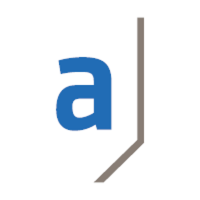
adesso Blog
13.01.2022 By Lars Zimmermann , Georg Benhöfer and Stephen Lorenzen
The coalition agreement of the new German government – an outlook on the energy industry issues of the coming years
On 24 November 2021, Germany’s Social Democrats, Greens and Free Democrats concluded on a coalition agreement that sets the course for the next legislative period. A central component is formed by energy industry specifications, measures and guidelines to enable a transition of the German energy sector and to accelerate the energy transition. We summarise the key points in our blog post.
Read more16.12.2021 By Stephen Lorenzen, Georg Benhöfer and Lars Zimmermann
MsbG Novelle 2021 (2021 amendment to the German Metering Point Operation Act) – clarity for the smart meter rollout?
2021 was a turbulent year. This year’s almost over, yet there’s still much to be discussed alongside the omnipresent topic of the Covid-19 pandemic, including the topic of smart meter rollouts. So before we enter into the new year, we’re taking a look at what lies behind us and outlining which positive resolutions are worth making for metering point operators in 2022.
Read more09.12.2021 By Stephen Lorenzen, Georg Benhöfer and Lars Zimmermann
Changes to electronic messages as part of the MaKo 2022 – key information moving forward
The German Federal Network Agency published adjustments to the MaKo 2022 on 1 October 2021 (part 1) and 15 October 2021 (part two). These changes cover three areas in particular: EDIFACT data formats, XML data exchange and decision tree diagrams. We explain what this means in detail in our blog post.
Read more01.12.2021 By Stephen Lorenzen, Lars Zimmermann and Georg Benhöfer
The new energy service provider role – an opportunity for more competition in metering?
In addition to many other changes, the implementation of MaKo 2022 (Market Communication 2022) has also resulted in the introduction of a new market role: from 1 April 2022, the energy service provider (Energieserviceanbieter, ESA) will expand the range of roles in market communication. In our blog post, we reveal the potential to stimulate competition in metering and thus have a decisive influence on the entire energy sector.
Read more02.11.2021 By Lars Zimmermann and Stephen Lorenzen
Redispatch 2.0 – energy transition leads to new power plant deployment planning
The increase in the share of renewable energies in electricity production makes new power plant deployment planning necessary in Germany. However, as the energy system has not yet been adapted to meet these requirements, the Redispatch 2.0 mechanism is being introduced. In our blog post, we explain what it is all about and why exactly redispatches are necessary.
Read more11.08.2021 By Georg Benhöfer
Heating Costs Ordinance 2021
Since 2016, utility companies in Germany have been obliged to digitalise their metering operations by the German Metering Point Operation Act (Messstellenbetriebsgesetz). Up to now, this has primarily focused on the electricity sector, but that is about to change with the draft bill for the Regulation on the Amendment of the German Heating Costs Ordinance (Verordnung über die Änderung der Heizkostenverordnung), which will also focus on submetering. In my blog post, I will explain everything you need to know about this topic.
Read more
